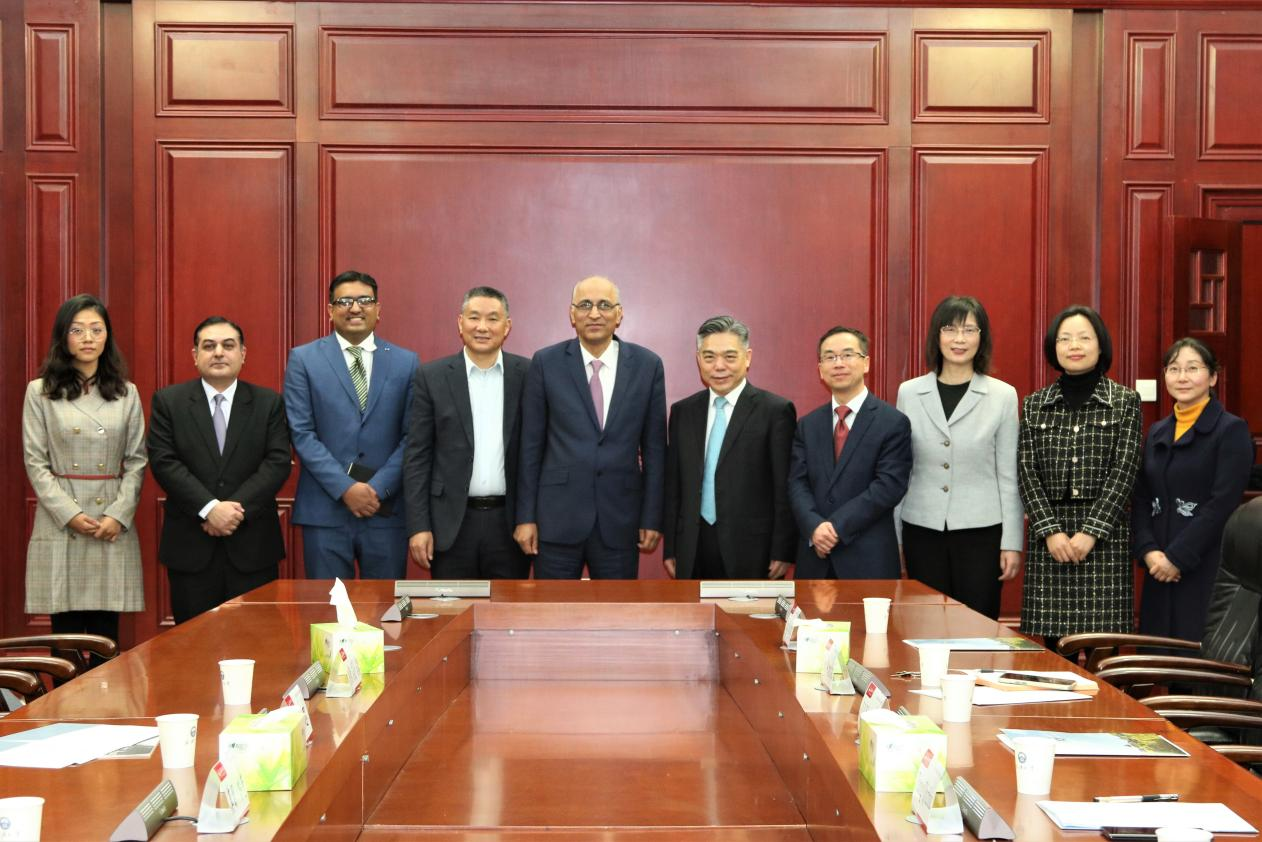On the afternoon of April 7, Pakistan’s ambassador to China, H.E. Mr. Moin ul Haque, along with his delegation visited Wuhan University. Professor Tang Qizhu, Vice President of WHU, met with the guests in the No. 1 conference room of the Administration Building. Li Xiaoshu, Director of the Office of International Affairs, Wang Aiju, Dean of the School of International Education, Wuhan University, Zhu Renshan and Tang Xiaofeng, professors of the College of Life Sciences, Wuhan University and Chen Lu, Director of the Foreign Affairs Office of Hubei Provincial People’s Government, attended the meeting.
Professor Tang Qizhu welcomed Ambassador Moin ul Haque on his visit to the university. He briefly introduced the overall background of Wuhan University and its history and current situation of exchange and cooperation with Pakistan. He said that exchanges and cooperation between Wuhan University and universities and scientific research institutions in Pakistan have become increasingly close. In particular, several cooperation projects with Punjabi University have gained the attention and support of both China and Pakistan. Professor Tang thanked the Pakistani Embassy in China for its support to Wuhan University over the years, and said that the ambassador’s visit will further deepen the mutual understanding and cooperation between Wuhan University and Pakistani universities and scientific research institutions.

Ambassador Moin ul Haque began by paying his tribute to Wuhan, the heroic city. He highly appreciated Wuhan University’s outstanding contributions to fighting the novel coronavirus in terms of virus detection epidemic prevention and control and campus management and thanked Wuhan University for caring and helping Pakistani students during the epidemic. He also said that China and Pakistan are all-weather cooperative partners, and both sides attach increasing importance to cooperation in education. China has surpassed the United States and the United Kingdom as the most popular overseas study destination for Pakistani students, with. a total of 28,000 Pakistani students currently studying in China. Ambassador Moin ul Haque expressed his hope that Wuhan University would develop deeper cooperation with more universities and scientific research institutions in Pakistan extending the cooperation fields to emerging science, technology and research. Currently, Pakistan is planning to establish two R&D-oriented universities in Islamabad and Sialkot. It is expected that Wuhan University will cooperate with these universities to establish some departments and schools with due consideration to its own advantageous disciplines and fields.

Later, Ambassador Moin ul Haque and his party went to the School of International Education, Wuhan University, to visit Pakistani students studying in WHU and learn about their study and life in China.
At present, Wuhan University has established substantial cooperative relations with Punjabi University, Lahore University of Management Sciences, Quaid-i-Azam University, and the Development and Economics Research Institute in Pakistan. Among them, the College of Life Sciences, Wuhan University and Punjabi University have jointly established the “Joint Research Center of Red-Lotus Hybrid Rice”, and the School of Law, Wuhan University and Lahore University of Management Sciences have jointly established the “Chinese Law Research Center”. Wuhan University began to recruit Pakistani students in 1990, and currently has 127 Pakistani students, mainly majoring in surveying and mapping, computer science, water conservancy engineering, Chinese language and literature, economics and other subjects.
Written by: Wei Yena, Peng Shang
Photographed by: Cao Haigang, Wu Qianqian
Rewritten by: Chen Muying